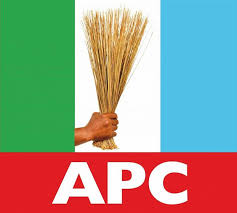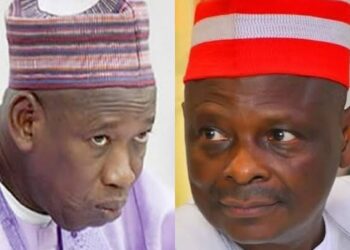Engineer Omar Suleiman was Managing Director of the Nigerian Ports Authority (NPA) from December 2010 to July 2012. In this interview, he speaks on his role at the NPA and myriads of other issues bordering on port development.
How has life been after NPA; what have you been doing relevant to the ports, transport and logistics industries?
I left NPA, but actually I haven’t left the industry. It is like I was born into the maritime industry and as you know, I joined NPA from my NYSC in 1984 and I stayed in NPA since then for 28 years until I left and through you people I am hearing that I did well at the NPA. Since then, I have been in the maritime industry, locally and internationally because I still render services to some international consultancy firms in terms of maritime, especially in the area of port infrastructure and logistics. Right now, I have some firms consulting me on port infrastructure from other countries.
We learnt you also decided to give politics a shot and had considered a senatorial seat for Adamawa Central. So, how are you gearing up for 2019?
Well, on politics, I will say that I am watching for now. The type of politics I wanted to engage in is to see to a polity with free and fair elections. We cannot seat down and be complaining that government is not doing anything without participation. If you can’t participate, then you shouldn’t complain. I saw a lot of things that could be done to help our people in the area of politics and that was why I ventured. Incidentally, at that time, things were being done contrary to my beliefs and I withdrew. For 2019, I am watching out and if it looks like something I can venture into again, I will, but if not, I remain busy here in the maritime industry helping to build ports and dockyards.
So can we say that the maritime industry is keeping you away from politics, because actually if you wanted to venture again into politics in 2019, you should have started doing something by now?
I think it is too early for us to begin doing something for 2019, because since we have ventured already, the apparatuses are already on ground; so, we just watch and in the next six months we will begin to see where we can belong. For now I belong to the maritime industry. I am always in Lagos attending to anything that is maritime issue, contributing my quota and I think this is my primary assignment.
Things are tough now for both government and business. How do you think this government has fared?
It is easy for anyone to say the government has not done this or that, but actually there is a lot attached to the business of government—in creating, enforcing and monitoring policies. I think the issue of not allowing people to deposit dollar in their accounts as the first monetary policy in Nigeria was one of the bane of this economy now, because I can tell you that there is so much monies, corrupt monies that are outside Nigeria. The governments of those countries know that these are corrupt monies but they still collected them. No economy refuses money to come into it, especially if the money belongs to its citizens. If you take $500,000 to America now and declare it, you may be arrested, but they will first take the money in. it will take them three or five months to get to the root of the money—whether it is corrupt money or not. After that if the money is not genuine, it will take them another five years to return the money to its country of origin. I think this is the origin of this dollar palaver that we face now and it is skyrocketing.
With exportation of agricultural produce by Nigerians growing out of proportion, there are fears that the country is running out of food. What do you think of the growing exportation of agricultural produce in the face of the need for foreign exchange and a balanced trade?
Truly, Nigerians are exporting food massively. Even in the north here, such agricultural produce as grains, maize and groundnuts are being exported massively out of the country. I think that is a welcome development because, one, it will pressure on the naira-dollar force that we are now dealing with. Two, it will help to generate high income for our people and three; it will encourage people now to go to farm because they can now earn more from their produce. So, it will make increase capacity for all those produce that are exported and it will in the long run, help us to have a lot of food within the country after making a lot of money from agricultural produce.
Nigeria aspires to be the maritime hub for West and Central Africa. How can it attain this status?
We can’t be hub now because we don’t have a deep seaport. About 60 per cent of all the imports to West Africa are destined to Nigeria but what gets here is just about 10 per cent. All the shipment coming to West Africa are billed for Nigeria, but at the end of the day what gets to Nigerian port directly is just about 10 per cent. The larger parts are offloaded in neigbouring ports in Cotonou and other West African states and they transship to Nigeria only 10 per cent. We need a deep seaport and good policies that will not discourage importers from our ports.
Would you call for a specific ministry of maritime, as is the case in some countries like India?
It is not wrong. The aviation has a ministry in Nigeria and so why not maritime. Which of the two industries is bigger?Even now, the ministry of Aviation is not effectively merged to Transportation because we still have two different ministers for them. The Minister of State for Aviation is in charge of Aviation. So we can as well have Minister of State for Maritime. Maritime commands more businesses. The maritime sector is the second revenue generator to the government and generous experience is needed to handle maritime because everything is under water; it is not like other industries everyone can see. There is a lot of wealth in the water that ordinary people don’t see.
The Warri Port and the Calabar Port have been having operational issues and businesses operating there are almost going into extinction. How can these ports be revived?
Well, let me mention that Warri Port has no problems. The problem of Warri Port is militancy. As you see, when militancy goes down and the investors feel comfortable, Warri Port will bounce back. But the Calabar Port has a big problem. Anyone in the maritime industry understands that in NPA archives, the Port of Calabar was not designed for Calabar. It was designed for Oron. Oron is on that paper until it went to the Military Council. It was at the Military council that cancelled Oron and put Calabar. It is 120 kilometres of high sea meandering channel.
If you dredge it this month with $100 million, in six months’ time you will need to dredge it again. That is the problem of Calabar Port. If you understand that you will understand why the port is where it is now. But it can be solved. In the maritime industry, once the operators are there, Calabar Port can be turned into an industrial port. It has six metres natural depth. Batches and smaller vessels can come in as an industrial port where a lot of manufacturing can be happening and value of integration gotten. But it can’t be managed for big vessels.
Culled from ship and port news online



